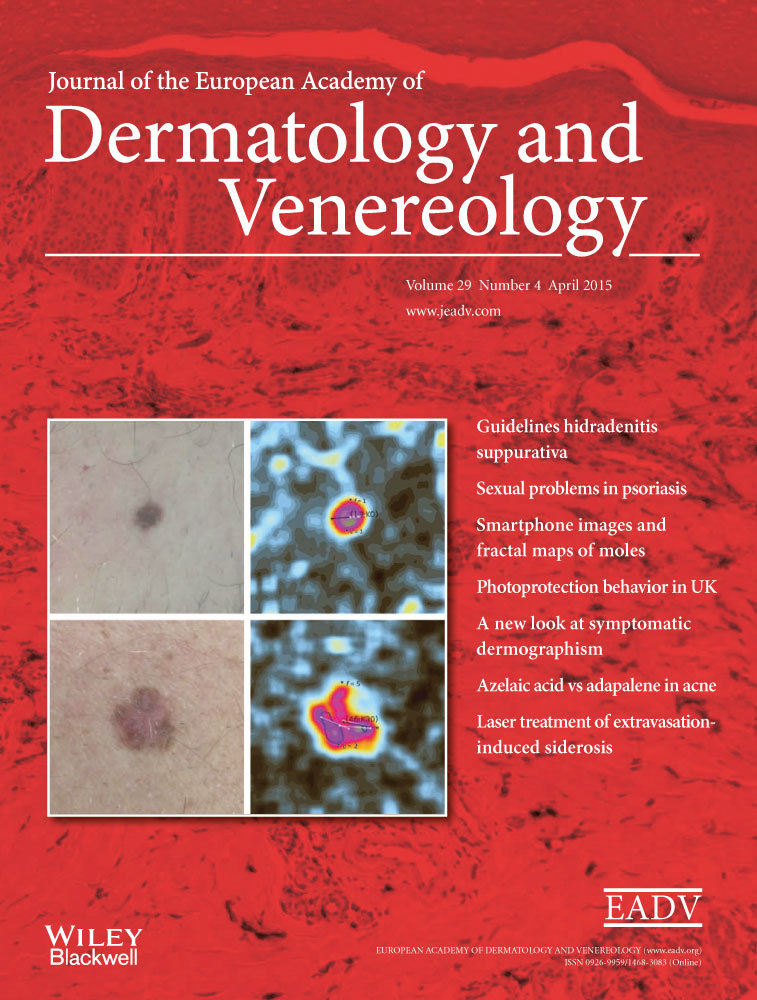Three cases of pruritic urticarial papules and plaques of pregnancy (PUPPP) treated with intramuscular injection of autologous whole blood
Conflicts of interest:
None declared.
Funding sources:
None declared.
Abstract
Background
Pruritic urticarial papules and plaques of pregnancy (PUPPP), also known as polymorphic eruption of pregnancy, is a common and benign but exceedingly uncomfortable dermatosis of pregnancy. Investigation of new treatment options has been limited by patient concerns about the negative fetal effects of medication.
Objective
To assess the efficacy of intramuscular injection of autologous whole blood (AWB) for treatment of PUPPP.
Methods
This is a retrospective descriptive case series of three patients with PUPPP, all of whom were treated with intramuscular injection of AWB.
Results
All patients showed good responses to intramuscular injection of AWB, tolerated the treatment, and there were no adverse effects to the patients or their babies.
Conclusion
AWB may be an alternative treatment option for patients with PUPPP who are worried about the risk of medication use during pregnancy or breastfeeding. Whole blood collected from the patient's own body may be preferable to foreign medications. Future investigation into the exact mechanism with controlled clinical studies using a large number of patients will be necessary to provide supporting evidence for this potential treatment.




